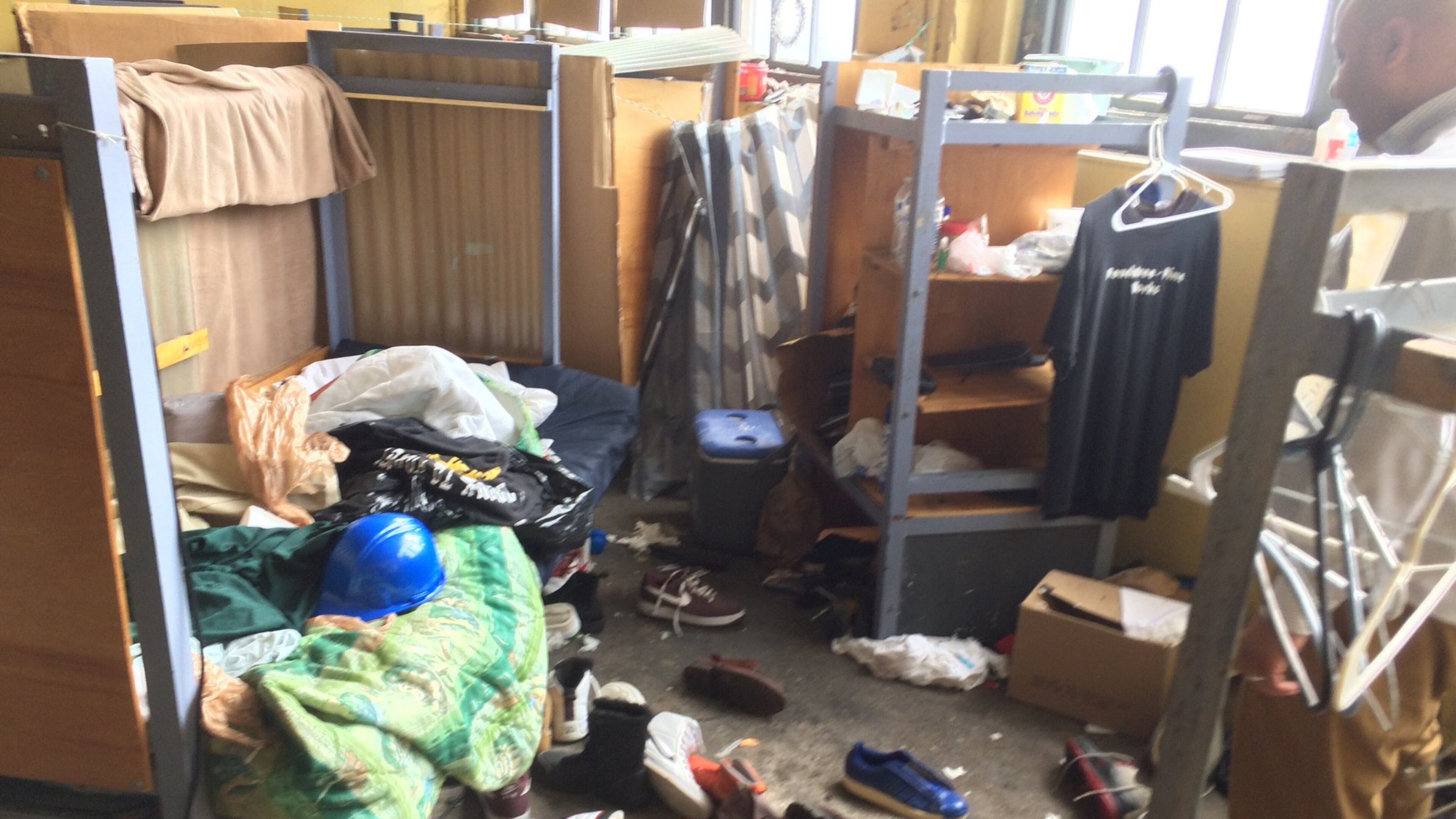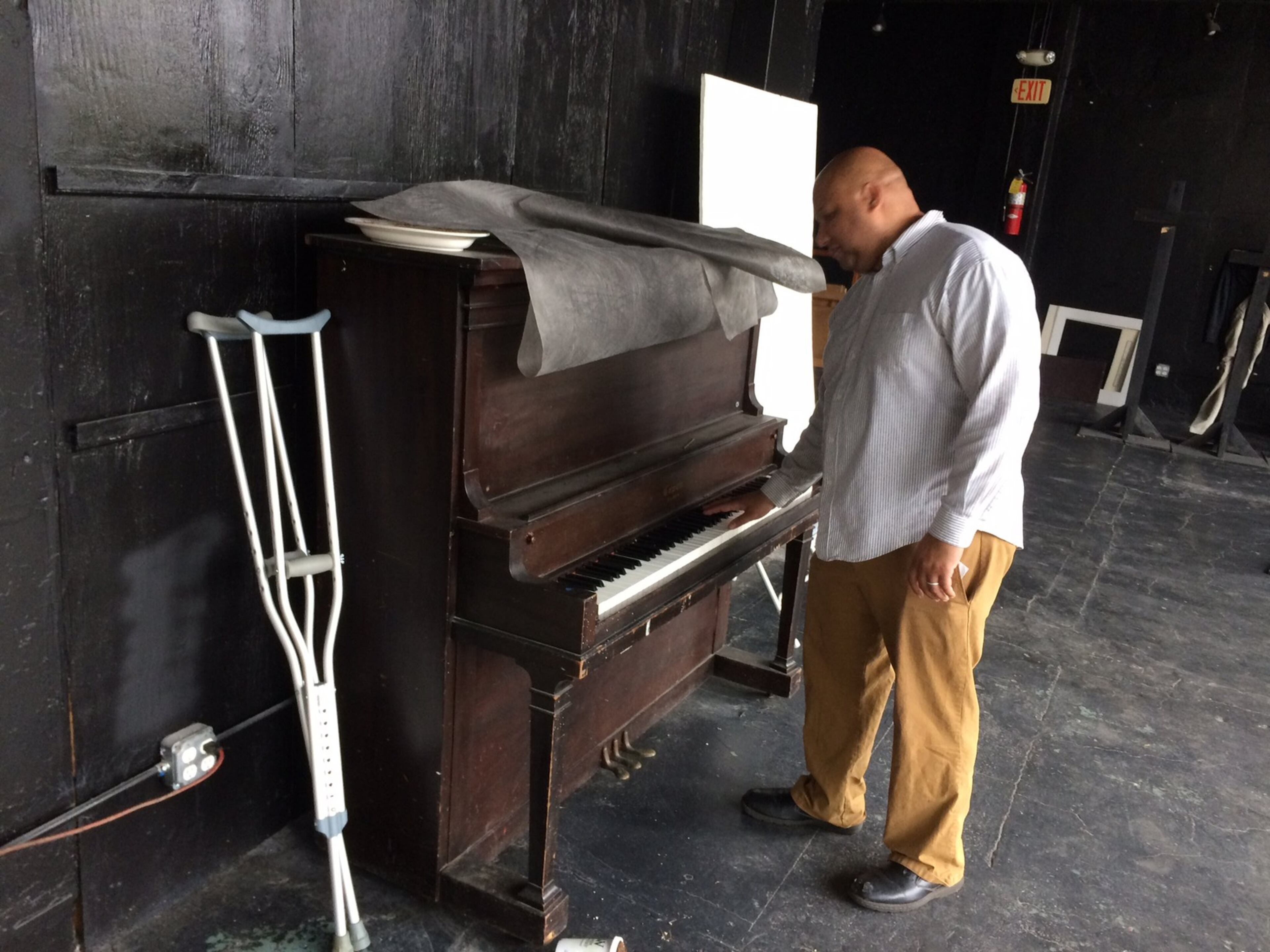Torpy at Large: It’s the end of ‘The Pine,’ but homelessness continues

Just before noon on Thursday, the last occupants of the homeless shelter at Peachtree and Pine streets in Atlanta carted their belongings to a van and then drove off to their new lives.
Anthony Murphy, 68, a six-year resident and a volunteer leader there, carried a painting and a bag and glanced wistfully back at the massive brick fortress that has been at the vortex of a nasty political and social feud for decades.

“The Pine is closed,” he said. “It was a good place that was needed. Woulda been a great place if we got the help that was needed.”
Murphy was referring to city and business leaders working to choke off the monetary lifeblood of the shelter. The shelter’s proprietors, in an effort to survive, sued to try to expose the dealings. But, finally, they capitulated this year and settled the lawsuit.
Murphy was glad to be headed to a one-bedroom apartment near Decatur. But he believes the mission to sweep poor black men off Peachtree Street is now complete. “And they’ll now sweep (the issue of homelessness) to the back burner.”
Outside the building on his cellphone was George Chidi, a former AJC reporter turned activist and small-town city councilman. As one of the transition team members who helped to resettle residents from the shelter, he insists nothing will be swept away.
“Everyone relied on this place to take the people no one else would take,” Chidi said. “There has to be a place for folks who hit the wrong rungs to go. I don’t think the system can hide it anymore.”
But, he added, “This place was not the solution.”
In its day, the Peachtree-Pine shelter would take in 700 street denizens, or more, on cold nights. It was the emergency relief valve for a system long broken. When other shelters filled, or wouldn’t take certain hard-to-fit individuals, The Pine was there.
Now it won’t be. Soon, after removing some beehive boxes from the roof, crews will fumigate the building, clean out tons of junk and secure the place.
And shortly thereafter, Central Atlanta Progress (CAP), a nonprofit set up by the business community to tout downtown, will put the 100,000-square-foot building up for sale and a new wave of redevelopment and gentrification will continue.
Anita Beaty, the gritty grandma who operated the shelter since 1997 and ran the Metro Atlanta Task Force for the Homeless since the 1980s, waged a brave, defiant but ultimately doomed battle against the Powers That Be.
Her group bought the building with a $1.3 million gift after the 1996 Summer Olympics and vowed to turn lives around and give the unwanted a place to rest in a harsh environment.
But 500 of society’s castoffs collecting on the doorstep of Midtown each evening just couldn’t stand, so the city and business community waged an effort to cut off Beaty’s funding and make the shelter slowly die.

Charles Steffen, chair of the Task Force board, was one of the board members who decided to turn over the shelter in August. He said it might have been cathartic to have a “last stand” in court and continue fighting for the shelter’s survival. But that would be very chancy and probably unrealistic. A reported $9.7 million settlement allowed the Task Force to pay off huge debts and survive to continue its work, albeit without a huge building.
“Only Anita could have kept it going all these years,” Steffen said. “She did it by kiting loans, floating checks, borrowing Peter to pay Paul. A lot of people who might have died on the streets didn’t because of her.”
Beaty walked away from her creation this year when the Task Force board moved to settle the suit.
The coalition of groups who resettled the residents found 255 in the shelter when they gained custody of the building in late August. (The number is always lower in the summer. And some residents left earlier, weary of changeover.)
About 200 of those former residents are in new housing, usually in apartments and normally with various kinds of vouchers.
“I’ll be living in a nice apartment complex in Stone Mountain, Georgia,” said Reginald, an 18-month shelter resident. (He’s using a Section 8 voucher.) “I could not have done this on my own. This gives me a chance to get a dishwasher job and work my way up.”

Steffen warned that getting apartments for a couple of hundred — or even more — former shelter residents will not solve the problem of homelessness.
“People have it in their mind that these 500 individuals get settled and problem solved,” he said. “But there’s another 500 behind them.”
A tour through the sprawling, block-long structure is eerie, given the quiet in the normally cacophonous building.
The main bedroom has nearly 200 steel-frame bunks and reminds one of something out of Dickens. Personal items left behind are strewn all over. Bibles, clothes, crutches, CDs, shoes, health magazines. A makeshift flame-thrower was discovered on the fourth floor.
Chidi, who is now the point man for homelessness for Central Atlanta Progress, acknowledges that Beaty was a fierce advocate for the homeless. But he has long complained that the building had become a stark, smelly hellhole unfit for human habitation.

During the tour, Chidi let loose with a healthy rant about all the government agencies that have fallen short in addressing the homeless, how mentally unfit people remain untreated, how surrounding metro counties dump their unwanted on the city of Atlanta.
He agreed there needs to be more “low-barrier” shelters that will take people off the street in a pinch — people who don’t conform to the rules of other shelters. The city hopes to establish smaller shelters in various parts of Atlanta, but one proposed on the Southside was vehemently opposed by the community. Poor people oppose homeless shelters with the same vigor as the rich.
In the meantime, local authorities have reopened the Jefferson Place shelter on the northwest side, right near the county jail.
Homelessness in metro Atlanta has been ebbing downward for years:
- The 2016 "point in time" count found 4,063 homeless people last year, including 1,783 in emergency shelters and 838 "unsheltered" (in parks, under bridges, etc.)
- In 2011, there were 5,987, including 2,105 in emergency shelters and 1,587 unsheltered.
But, Chidi noted, anecdotal evidence of the last six months shows an unsettling trend: There are more homeless people in downtown Atlanta.
The conundrum never ends.


